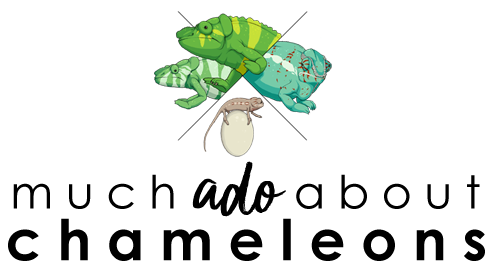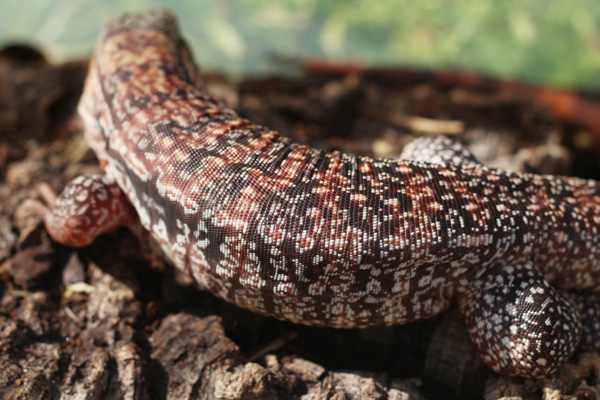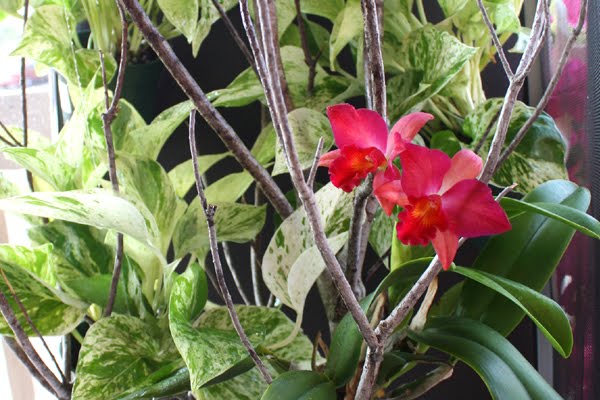When I first purchased the R. leachianus geckos I found myself in a slight predicament – I wanted
to snatch up the pair before the person selling them realized how insane they
were to charge only a few hundred dollars for an adult, proven breeding pair of
Nuu Ana geckos, but I wasn’t prepared to house animals of this size just yet. I
only had a week to prepare the cage, and I didn’t want to order in something in
the fear that shipping would take too long and I’d find myself with two animals
without a proper home.
So then I looked through the reptile supplies that I did
have and realized that I could probably emulate closed-sided cages like the
Dragonstrand designs for less money and in less time than ordering a new one. I
knew the quality wouldn’t compare, but for now it should prove to be more than
adequate. I just needed something large, and with mostly solid sides. And then
I realize that this could prove a useful tutorial for anyone else that perhaps
wanted to add a solid side or two to their screen cages themselves.
1. I started with an old LLL Reptile screen cage in grey, in
this case a 48” tall x 24” deep x 24” wide model. The screen was old and broken
from years of use and moves from house to house, so I ripped out the screen and
spline completely.
2. I bought a large sheet of acrylic shower liner (for $20), which is
found in most large home improvement stores, and measures a convenient 48” tall
x 96” wide, which is just enough for 4 complete sides on a cage like this. I
only needed 3 sides, however, so I have one left over in case I need to replace
anything. In past projects I’ve spray-painted the plastic a pleasing color but
I decided to leave it white this time for ease of cleaning. Gecko poop is something else!
I laid down one of the frames of the cage and measured drew
out the lines for each panel. I cut them with a good razor blade and a
metal-edged ruler to get a straight line as much as possible. This material is
easy to cut, thankfully. It’s thick enough for this purpose but not completely
rigid.
3. Then I grabbed a tube of clear silicone that we use at
work all the time to secure specimens down for extended UV exposure, so not
only do I know that this stuff is amazingly durable, but once dry it is
harmless and easy to remove. I used this silicone to glue the frame to the inside
of the cage aluminum frame. I placed some random weights across the top and let
it all dry overnight and the following day.
4. Once the glue is cured and the sheets are securely
attached to the frame, I assemble the cage as usual. If you have a drill I
recommend drilling out the holes for the screws ahead of time, but I did not at
the time so I simply had the screw go through the plastic. It doesn’t require
too much force, and you get a tight fit as well.
And that’s it! I ended up with a cage that had solid sides
on the left, right, and back face of the cage and screen on the top and door. This worked extremely well for the geckos for about a month
until they started fighting with each other and they had to be separated. In
the photo above you can see the corners fit tightly, and the quality of the
finished cage was pretty decent (if I do say so myself.) Unfortunately, this
whole project was photographed mainly at night and on my cell phone so the
photo quality is not much to speak of.
 |
| More branches were added across the top the following days. It is hard to find branches thick enough for these guys! |
This material still allows me to pin branches up
horizontally using thumb tacks or push-pins, it lets me thread fishing line to
tie branches up as well, and proved to be easily climbable for the geckos,
which like to hang vertically on the sides of their enclosures.
This could work well for people that like the benefits of
having several sides covered up (either to keep temperature and humidity inside
the cage more stable longer, or to keep mist water from ruining the walls,
etc.) but without the added weight of having to buy a heavy glass cage. This
cage is still light, easy to move, and serves the purpose well.


















This comment has been removed by the author.
ReplyDeleteI have been dotty by reading your blog because it has a unique data.
ReplyDeletehttp://kbmdc.org/
hello!! Very interesting discussion glad that I came across such informative post. Keep up the good work friend. Glad to be part of your net community. gerbil cages from cage heaven
ReplyDelete